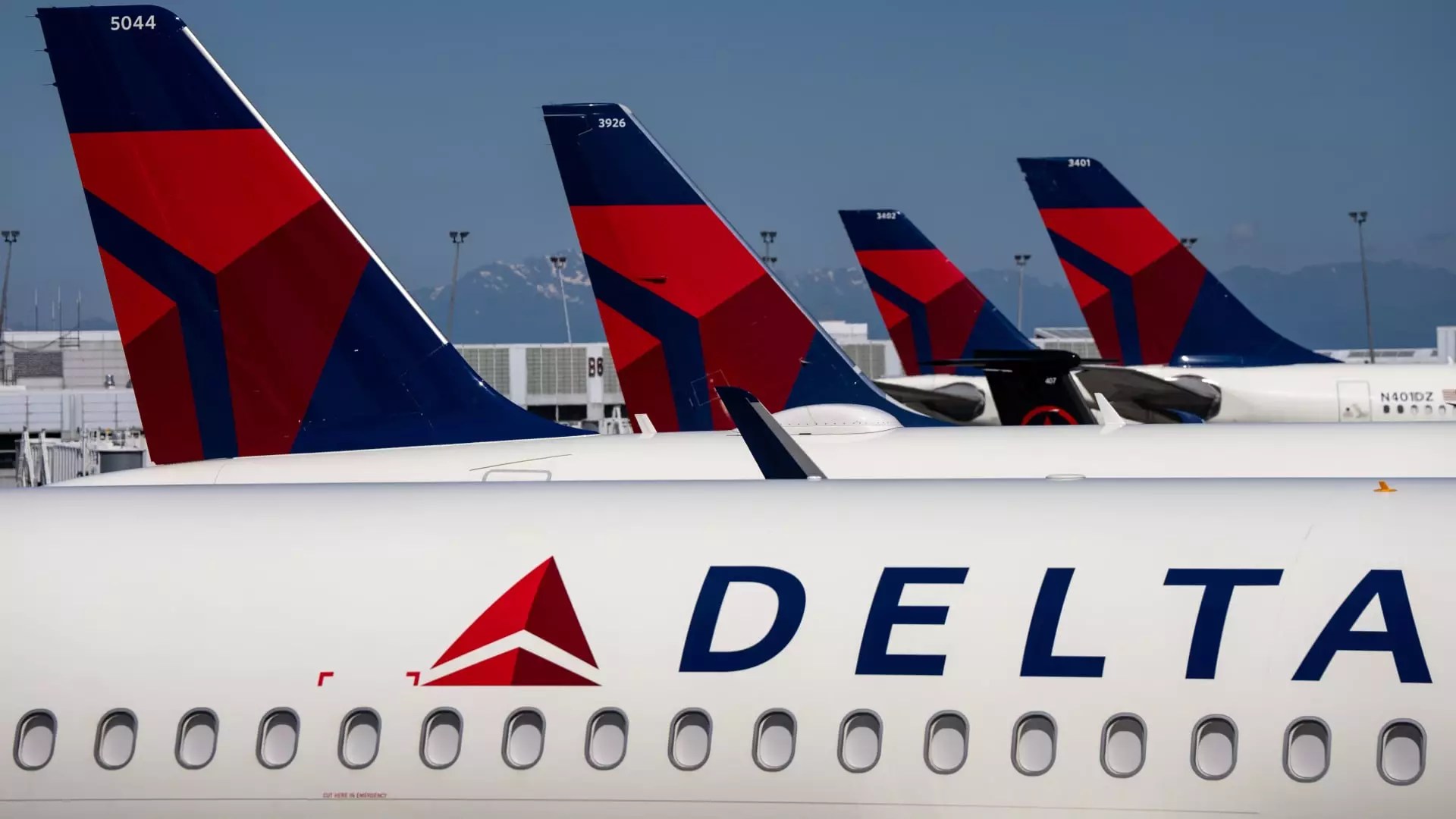The turbulence in the airline sector has reached new heights, exemplified by Delta Air Lines’ shocking revision of its first-quarter revenue and profit forecasts. Once seen as a resilient player in a recovering post-pandemic landscape, Delta now faces a troubling reality. Projected growth has been cut significantly, with expectations of only a 5% revenue increase from last year—a stark drop from a previously optimistic forecast of 6% to 8%. This plummet is not just an isolated incident; it underscores a broader malaise affecting the travel industry as consumer confidence wavers and corporate travel continues to falter, raising red flags for all players involved.
A Market Under Siege
On Monday, Delta’s shares took a nosedive, plummeting over 13% in after-hours trading right after a regular session decline of more than 5%. This sell-off signals underlying issues within the market—issues that extend beyond Delta itself. With consumer and corporate confidence being eroded by macroeconomic uncertainties, we are witnessing one of the most significant declines in airline stock values in recent memory. The recent fatal midair collision and a crash during landing at Toronto further exacerbate Delta’s woes. Such incidents shake passenger confidence at a time when every seat counts, and the potential for a resurgence in travel appears increasingly dim.
Consumer Behavior: A Shrinking Market
Delta’s CEO, Ed Bastian, offered a sobering perspective during an interview, sharing that he does not foresee a recession but acknowledges a noticeable dip in consumer confidence. Bookings from both leisure and business travelers have declined, prompting a significant reassessment of demand forecasts. The airline industry was once lauded for its resilience; however, as loyalty and premium travel revenue continue to perform well, the broader picture reflects a worrying trend. The industry seems grappling with a new normal where the previously taken-for-granted enthusiasm for travel is being replaced by restraint—whether due to inflation, economic predictions, or an increasing hesitance to engage fully with the travel experience.
The Broader Implications for the Industry
The predicament faced by Delta is likely to send ripples through the wider airline sector, where competitors like American Airlines, Southwest, and United Airlines will soon have to report their own demand trends amidst these unsettling shifts. Delta’s drastic forecast modifications drop a heavy hint: the optimism that once buoyed the airline industry through the pandemic is fading. In a time when corporate America pushes for a more assertive return to typical spending habits, the mixed signals from the airline world could hinder growth, leading to even less durable economic recovery.
Not Just a Delta Issue
This isn’t merely a Delta problem, but a wake-up call for all airline operators. As we approach the JPMorgan airline industry conference, it’s evident that investors are anxious and the sector must shift its approach to adapt to a marketplace with changing attitudes toward travel. The vacuum left by weakened demand can no longer be filled with optimism; tangible strategies are necessary to instill confidence in both businesses and travelers alike. The cold hard truth is staring everyone in the face—unless these airlines refocus and reassess their marketing strategies, the sky may not be the limit anymore.


Leave a Reply